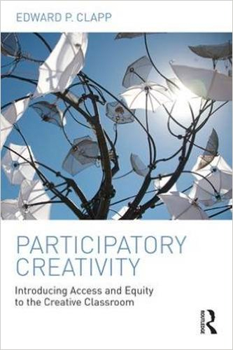
Participatory Creativity
PUBLISHED:AUTHORS: Edward P. Clapp
Resource Summary
Participatory Creativity: Introducing Access and Equity to the Creative Classroom presents a systems-based approach to examining creativity in education that aims to make participating in invention and innovation accessible to all students. Moving beyond the gifted-versus-ungifted debate present in many of today’s classrooms, the book’s inclusive framework situates creativity as a participatory and socially distributed process. The core principles of the book are that individuals are not creative, ideas are creative; and that there are multiple ways for a variety of individuals to participate in the development of creative ideas. This dynamic reframing of invention and innovation provides strategies for teachers, curriculum designers, policymakers, researchers, and others who seek to develop a more equitable approach towards establishing creative learning experiences in various educational settings.



-
-
-
-
-
-
Support PZ's Reach